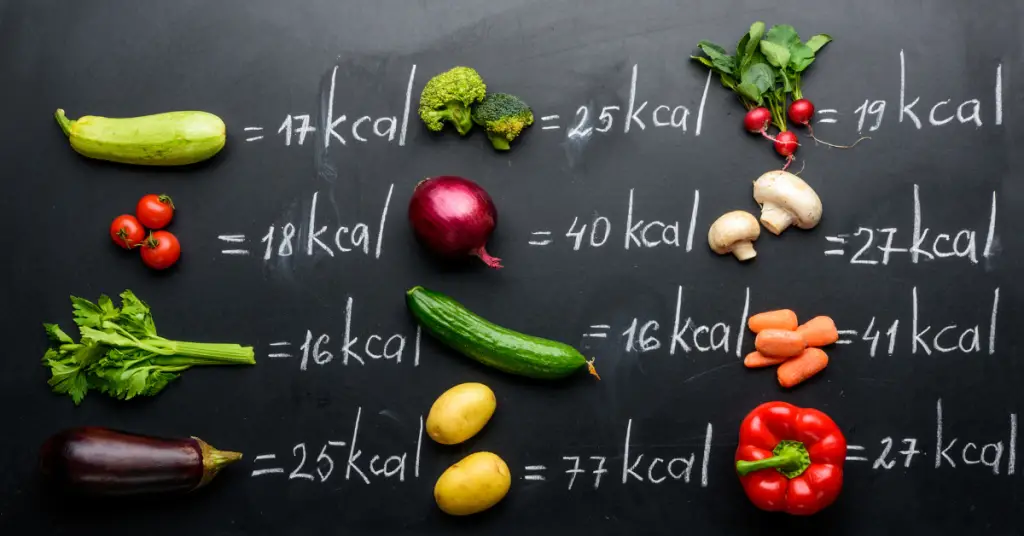Talking about the benefits of calorie restriction seems a bit counter-culture these days. Everyone has been so preoccupied with combatting our “diet” culture that everything that requires not eating when hungry is almost akin to a sin. Furthermore, women worry that not eating enough will slow their metabolism. Well, I have news for you: calorie restriction is a powerful anti-aging tool. In this post, we will discuss how calorie restriction increases longevity and reverses aging, but before we do, let me share other impressive calorie restriction benefits.
Health Benefits of Calorie Restriction
Calorie restriction, also known as energy restriction or calorie reduction, is a dietary practice that involves consuming fewer calories than usual while maintaining adequate nutrition. Research suggests that calorie restriction can have several health benefits, although it’s important to note that these benefits may vary among individuals and should be approached with caution. Here are some potential calorie restriction benefits:
- Increased lifespan: Calorie restriction has been shown to extend lifespan in various animal models, including yeast, worms, flies, and rodents. While the evidence in humans is limited, some studies suggest that long-term calorie restriction may be associated with increased longevity.
- Improved metabolic health: Calorie restriction can help improve metabolic parameters such as insulin sensitivity, blood sugar control, and lipid profile. It may reduce the risk of developing chronic conditions like type 2 diabetes, cardiovascular disease, and metabolic syndrome.
- Weight management: Calorie restriction can be an effective weight loss and management strategy. By consuming fewer calories, you create an energy deficit that can lead to a reduction in body weight and body fat.
- Enhanced cognitive function: Some studies indicate that calorie restriction might positively affect brain health and cognitive function. It may improve learning, memory, and neuroplasticity, potentially reducing the risk of age-related cognitive decline and neurodegenerative diseases like Alzheimer’s.
- Anti-inflammatory effects: Calorie restriction may reduce chronic low-grade inflammation implicated in various diseases. By modulating inflammatory pathways, calorie restriction might help mitigate inflammation-related conditions like arthritis and inflammatory bowel diseases.
- Cellular and molecular benefits: Calorie restriction can induce certain cellular and molecular changes that promote cellular repair, improve stress resistance, and enhance the efficiency of cellular processes. These changes may contribute to overall health and longevity.
Maybe you find it hard to go without food for more than four hours, feeling hungry makes you unhappy, and you think: why bother with this if I am miserable in the process? I don’t want a long and miserable life! You are not alone! That used to be me, and keep reading; I will explain how you can enjoy the benefits of calorie restriction and feel happy simultaneously!

Calorie Restriction Benefits for Anti-Aging
The most exciting aspect of using calorie restriction for anti-aging is that one possible mechanism behind how it works is that it slows down your metabolism, which is why it reduces oxidative stress. Reducing oxidative stress can help slow down the aging process because it helps protect our cells and DNA from damage. When we reduce oxidative stress, we minimize the harmful effects of free radicals on our bodies. I am sure you have heard of anti-oxidants and their benefits but probably hadn’t heard of slowing down your metabolism for its anti-oxidant benefits, right?
But keep in mind the extent to which calorie restriction can reverse aging in humans is still debated and investigated. For example, the anti-aging benefits observed in studies may be caused by weight loss due to calorie restriction, at least in part.

Calorie Restriction Benefits for Weight Loss
Calorie restriction works for weight loss because eating fewer calories than your body needs creates an energy deficit. To compensate for this deficit, your body uses stored energy, including breaking down fat stores. This leads to weight loss. Calorie restriction also reduces the accumulation of new fat. It is generally recognized that a calorie deficit of 500 calories a day (3500 calories a week) equals a weight loss of about 1 pound a week.
From experience, I can tell you that intermittent fasting is the easiest way to reduce the calories you naturally consume. The main issue with calorie restriction on its own is that feeling hungry all the time sucks. Who wants that? You must first regulate your insulin levels to learn intuitive eating and rediscover your hunger cues. How do you go about that? You train your body to become metabolically flexible, which means your body can easily switch back and forth from using glucose to using ketones for energy. No more after crashes, unsatiable cravings, and feeling grumpy when hungry!
Read Counting Calories to Lose Weight: Should You Try It? if you are curious and would like to learn more.

What If Feeling Hungry Makes You “Angry?”
Maybe you feel pretty sold about the benefits of calorie restriction, but you struggle with food cravings and the inability to go hungry. Feeling hungry makes you miserable! You are not alone! Most women over 40 have become insulin-resistant and, therefore, find food deprivation almost intolerable. Don’t worry! There is a way to heal your body while regulating your insulin levels and resetting your hunger hormones. How? By becoming fat-adapted, or what I like to call metabolically flexible.
To do so, you have to train your body to stop depending on glucose for energy and teach it to use ketones (your fat cells) instead. You can try a keto cycle (strict keto diet for 7-14 days) or a modified fast based on the Fasting Mimicking Diet. Once you have switched to ketosis, you must maintain your metabolic flexibility using intermittent fasting. Read What Is Metabolic Flexibility and How It Can Help You Lose Weight for more info.
Furthermore, consider my Weight Loss Transformation Program, which will lead you step-by-step through the process, with mini-coaching sessions, checklists, PDFs, and all the necessary resources to succeed.

How Calorie Restriction Reverses Aging
Calorie restriction (CR) is a dietary practice that involves consuming fewer calories than usual while maintaining adequate nutrition. One of the fascinating aspects of CR is its potential to impact the aging process and potentially reverse some age-related changes. While the mechanisms underlying this reversal are complex and not fully understood, several theories have been proposed to explain how calorie restriction may exert its anti-aging effects. This response will explore some of these theories and their implications.
- Reduced oxidative stress: Calorie restriction has been shown to decrease the production of reactive oxygen species (ROS) (by slowing your metabolism) and enhance the body’s antioxidant defense mechanisms. ROS are highly reactive molecules that can damage cellular structures, including DNA, proteins, and lipids. By reducing oxidative stress, CR may slow the accumulation of oxidative damage, a process associated with aging and age-related diseases. Calorie restriction can reduce your oxidative stress by 20 percent after 2 years! (see Eating A Calorie-Restricted Diet Not Only Burns Fat But May Also Reduce Cell Damage, Study Suggests)
- Improved mitochondrial function: Mitochondria are the cell’s powerhouses that generate energy through adenosine triphosphate (ATP). With age, mitochondrial function tends to decline, leading to decreased energy production and increased production of ROS. Calorie restriction enhances mitochondrial efficiency and reduces mitochondrial damage, potentially reversing age-related declines in mitochondrial function.
- Enhanced autophagy: Autophagy is a cellular process of degrading and recycling damaged or dysfunctional cellular components. It plays a crucial role in maintaining cellular health and preventing the accumulation of toxic substances. Calorie restriction has been shown to stimulate autophagy, clearing out damaged proteins and organelles and promoting cellular rejuvenation.
- Reduced inflammation: Chronic low-grade inflammation is a hallmark of aging and contributes to the development of age-related diseases. Calorie restriction has been observed to lower levels of inflammatory markers in the body. By reducing inflammation, CR may help mitigate the adverse effects of chronic inflammation on cellular function and tissue integrity.
- Altered gene expression: Calorie restriction can influence the activity of various genes involved in cellular processes, such as energy metabolism, stress response, and longevity. Specific genes called sirtuins, particularly SIRT1, have gained significant attention in CR research. SIRT1 activation has been linked to numerous health benefits associated with CR, including enhanced mitochondrial function, improved insulin sensitivity, and increased stress resistance.
- Hormonal changes: Calorie restriction can influence the secretion and activity of several hormones, including insulin, insulin-like growth factor 1 (IGF-1), and adiponectin. Lower levels of insulin and IGF-1 are associated with increased lifespan and improved metabolic health. Adiponectin, a hormone secreted by fat cells, has anti-inflammatory and insulin-sensitizing effects. Calorie restriction has been shown to increase adiponectin levels, which may contribute to its health benefits.
It’s important to note that while the aforementioned theories provide insight into the potential mechanisms underlying the anti-aging effects of calorie restriction and aging in humans, more research is needed to understand these processes and their interplay fully.
It’s also crucial to emphasize that calorie restriction should be cautiously approached. Severe or prolonged calorie restriction without proper nutrition can lead to nutrient deficiencies, muscle loss, decreased immune function, and other adverse health effects. It’s essential to ensure the body receives adequate nutrition, including essential vitamins, minerals, proteins, and fats, even when practicing calorie restriction.
How to Start a Calorie Restriction Diet Using Intermittent Fasting
I recommend using intermittent fasting to naturally benefit from calorie restriction without feeling slightly hungry most of the time (which would be hard to maintain). Starting a calorie-restriction diet involves reducing your daily calorie intake while ensuring adequate nutrition. Here are some steps to help you get started:
- Determine your calorie needs: Calculate your daily calorie needs based on factors such as age, gender, weight, height, and activity level. This will give you an estimate of how many calories you need to maintain your current weight.
- Set a calorie goal: Decide on a target calorie deficit. The recommended calorie deficit for anti-aging and weight loss is between 10 and 20 percent. I usually tell my client to set a target weight loss of 2 pounds per month, which requires a calorie deficit of about 200 calories a day or 10-15 percent of your calorie needs.
- Ensure you are fat-adapted: If you are not metabolically flexible yet (which means you struggle and feel awful when hungry, suffer from afternoon energy crashes and insatiable food cravings), do a keto cycle (read How to Keto Diet for Weight Loss and Health: Wait! It’s Not What You Think!) or one modified fast (Modified Fasting: How You Can Benefit From Fasting Without Starving).
- Pick your intermittent fasting method: Once you know your weight loss goal, you don’t have to count portions and calories. Pick the intermittent fasting method that seems most logical according to your goal. To remain fat-adapted, I recommend a longer fasting window than the typical 14-16 hours window. When you are fat-adapted and fast long enough, you feel different once you switch to your optimal fat-burning zone. You feel energized, and your hunger isn’t bothering you. For most of my clients, 20 hours is about right. Since you need a calorie deficit of about 1800 calories a week, you should be able to fast only 3-4 days week.
- Plan your meals: Design a meal plan that includes a variety of nutritious foods while staying within your calorie goal. Focus on whole, unprocessed foods such as fruits, vegetables, lean proteins, whole grains, and healthy fats. Use online resources or smartphone apps to track the calorie content of foods and help you plan accordingly (read What to Eat on Intermittent Fasting for Weight Loss).
- Practice intuitive eating: Sit to eat, chew slowly, pay attention to your food, and stop when full. Also, stay in tune with your body as far as what types of foods to eat. You will notice that sometimes you crave greens, protein, and healthy fats.
- Monitor your progress: Keep track of your food intake and monitor your progress regularly. This can be done using a food diary, smartphone apps, or online trackers. Pay attention to both calories and the nutritional content of your meals to ensure you’re meeting your nutrient needs.
- Stay hydrated: Drink plenty of water throughout the day. Sometimes, we mistake thirst for hunger, so staying hydrated can help prevent unnecessary snacking or overeating.
Read How Many Calories Should I Eat While Intermittent Fasting for Weight Loss for additional help.
In Summary
Some powerful calorie restriction benefits to consider: It may increase lifespan, improve metabolic health, aid in weight management, enhance cognitive function, reduce the risk of certain diseases, have anti-inflammatory effects, and induce cellular and molecular changes that promote cellular repair. However, it should be approached cautiously and under professional guidance to ensure adequate nutrition and avoid potential adverse health effects.




